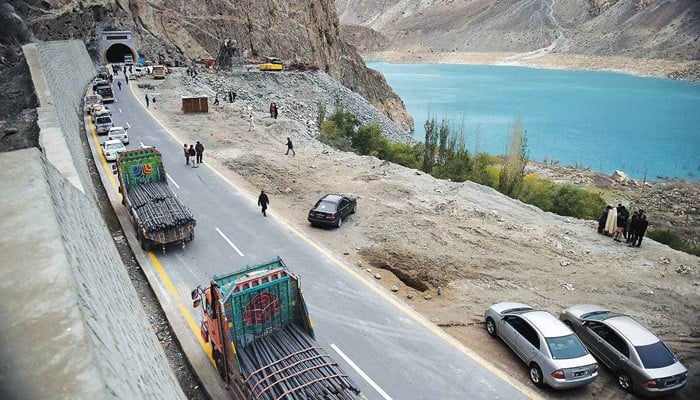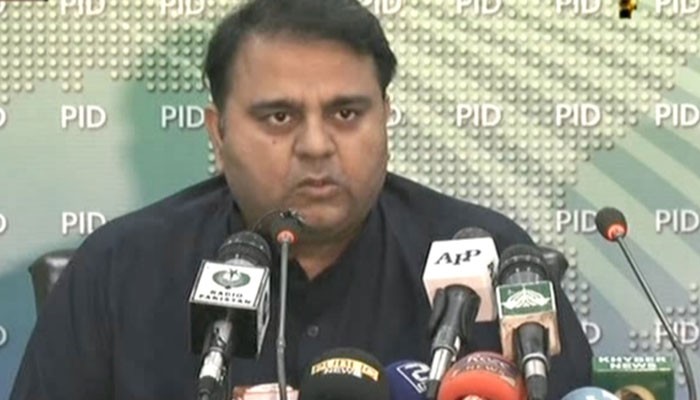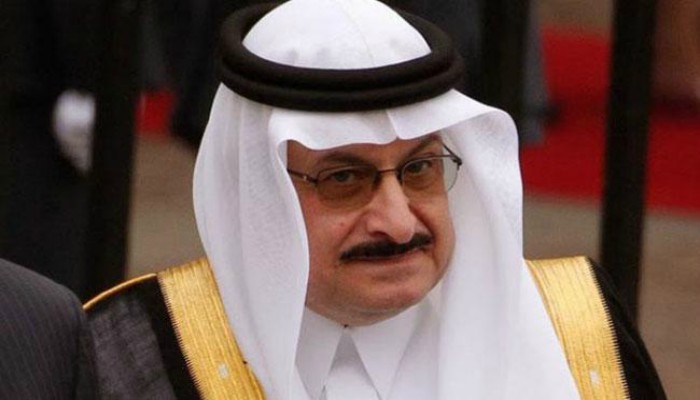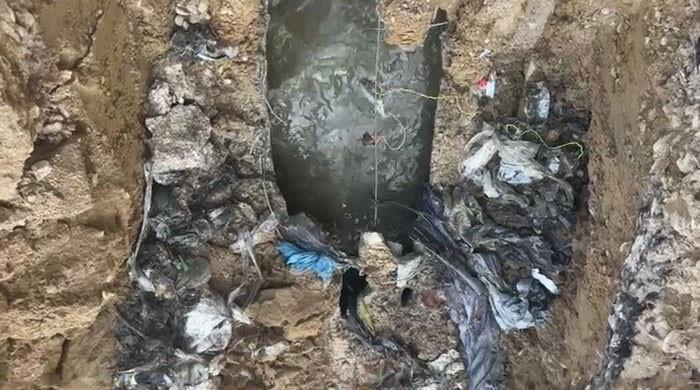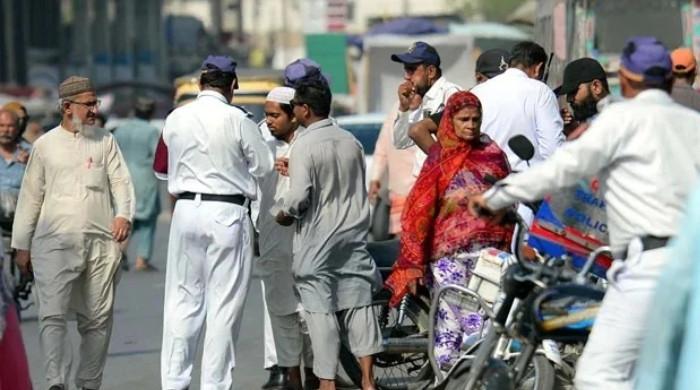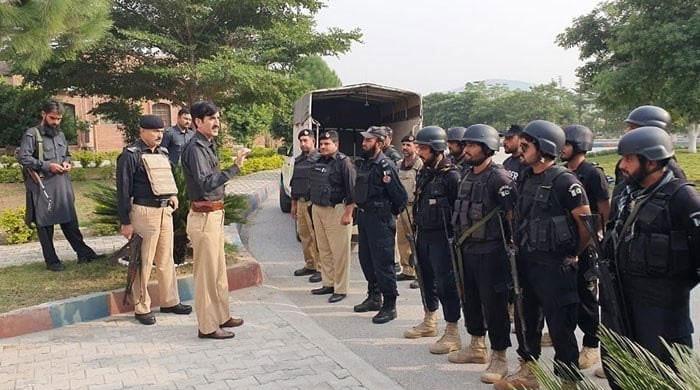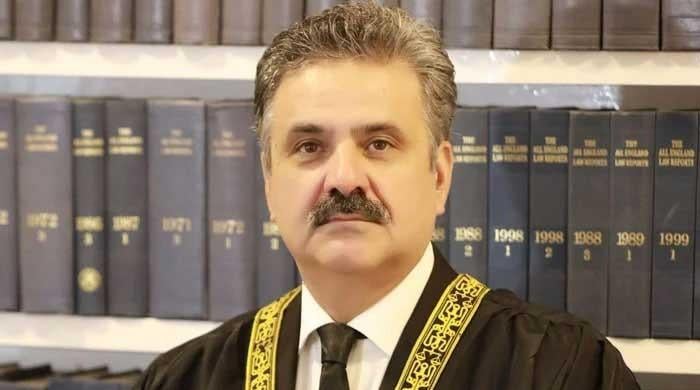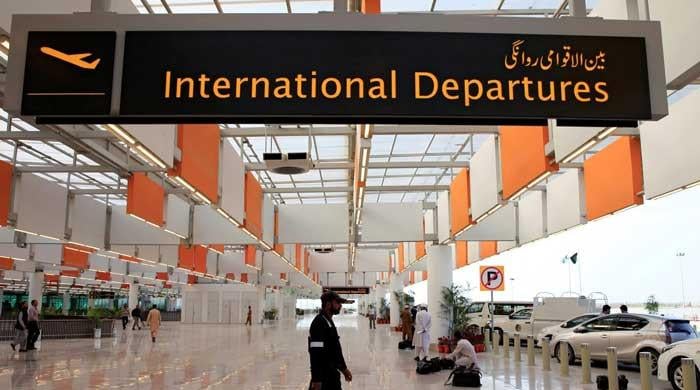China open to Pakistan's suggestions on 'mutual consultation': Ambassador Yao Jing
'This is Pakistan’s economy, this is their society,' Yao said
October 01, 2018
ISLAMABAD: China was open to the changes proposed by the new, Prime minister Imran Khan-led Pakistani government and "will definitely follow their agenda” to work out a roadmap for BRI projects based on “mutual consultation”, Ambassador Yao Jing told Reuters on Sunday.
“It constitutes a process of discussion with each other about this kind of model, about this kind of roadmap for the future,” the Chinese Ambassador to Pakistan said, adding that Beijing would only proceed with projects that Islamabad desired.
“This is Pakistan’s economy, this is their society,” Yao said.
Both friendly countries were committed to pressing forward with BRI projects, China’s Foreign Ministry said in response to questions faxed by Reuters, in order “to ensure those projects that are already built operate as normal, and those which are being built proceed smoothly”.
According to Pakistani officials, one option is the build-operate-transfer (BOT) model, which would see investors or companies finance and build the project and recoup their investment from cash flows generated mainly by the rail freight business, before returning it to Pakistan in a few decades' time.
Beijing was open to BOT and would “encourage” its companies to invest, the Chinese envoy said.
Earlier, Islamabad baulked at the cost and financing terms, with resistance to the Belt and Road Initiative (alternatively known as The One Belt One Road (OBOR)) — and especially the China-Pakistan Economic Corridor (CPEC) — stiffening under the government of Khan, who has voiced alarm about rising debt levels and says the country must wean itself off foreign loans.
Model that doesn't 'have all the risk'
Pakistan’s new government had wanted to review all BRI contracts. Officials say there are concerns the deals were badly negotiated, too expensive or overly favoured China.
“We are seeing how to develop a model so the government of Pakistan wouldn’t have all the risk,” Khusro Bakhtyar, a minister in Pakistan’s planning ministry, told reporters recently.
In fact, back on September 10, renowned economist Abdul Razak Dawood, who is also the advisor to prime minister Imran Khan on commerce, textiles, industries production and investment, had told an international economic magazine that all CPEC-related projects must be halted for at least a year.
Deals that are giving illegal benefits to the Chinese companies need to be revisited and made anew, he added, since Pakistani companies are at a disadvantage.
Citing Islamabad's unease with what it claims is unjust benefit being enjoyed by Beijing-origin companies, Dawood told Financial Times he thought “we should put everything on hold for a year so we can get our act together.
"Perhaps we can stretch CPEC out over another five years or so."
Debt concerns
Pakistani officials also say they remain committed to Chinese investment but want to push harder on price and affordability, while re-orientating the CPEC — for which Beijing has pledged about $60 billion in infrastructure funds — to focus on projects that deliver social development in line with Khan’s election platform.
The reconsideration of the OBOR's CPEC — an $8.2-billion revamp of a colonial-era rail line snaking from the Arabian Sea to the foothills of the Hindu Kush — has become a test of the country's ability to rethink the signature Chinese projects due to debt concerns, especially after lengthy delays.
The rail megaproject that links the coastal metropolis of Karachi to the northwestern city of Peshawar is China’s biggest OBOR project in Pakistan.
While the Chinese foreign ministry confirmed that Beijing was engaged in “friendly consultations” with Pakistan on the rail project and that its companies participated in BRI projects in an open and transparent way, “pooling benefits and sharing risks”, three senior government officials told Reuters that it was is only willing to review projects that have not yet begun, much to Islamabad’s chagrin.
Further, Pakistan's efforts to recalibrate the CPEC are made trickier by its dependence on Chinese loans to prop up its vulnerable economy. Analysts believe it will struggle to attract non-Chinese investors into the project, which may force it to choose between piling on Chinese debt or walking away from the project.
Nevertheless, Islamabad is exploring funding options that depart from the traditional BRI lending model — whereby host nations take on Chinese debt to finance construction of infrastructure — and has, therefore, invited Saudi Arabia and other countries to invest.
Saudi Arabia and CPEC
Mid-last month, Pakistani Information Minister Fawad Chaudhry had said a high-level committee has been formed upon the recommendation of Saudi King Salman bin Abdulaziz, and that a delegation from Riyadh, during its visit to Islamabad, would comprise their finance and energy ministers.
The pacts with Saudi Arabia will be transparent and clear, Chaudhry had said at the time, adding that huge investment would pour in from the other side.
His statements were confirmed two days later by Nawaf Saeed Ahmed Al-Malkiy, the Saudi Ambassador to Pakistan, who explained that his country would soon join the CPEC and make investments at the Gwadar Port to play a role in the progress and prosperity.
Earlier this week, Pakistan and Saudi Arabia consequently signed “three grant agreements” to bring major investment in the country.
A high-level Saudi delegation reached Pakistan Sunday morning to hold talks, with sources saying Saudi Finance Minister Mohammed Al-Jadaan will arrive on either Tuesday or Wednesday.
From Islamabad, Asad Umar and Ghulam Sarwar Khan, the ministers for finance and petroleum, respectively, will be part of the team that would hold talks with the delegation from Riyadh.
The two nations are expected to sign five important Memorandums of Understanding (MoUs) and hold discussions, and the Saudi team would be briefed about the Pakistani economy.

